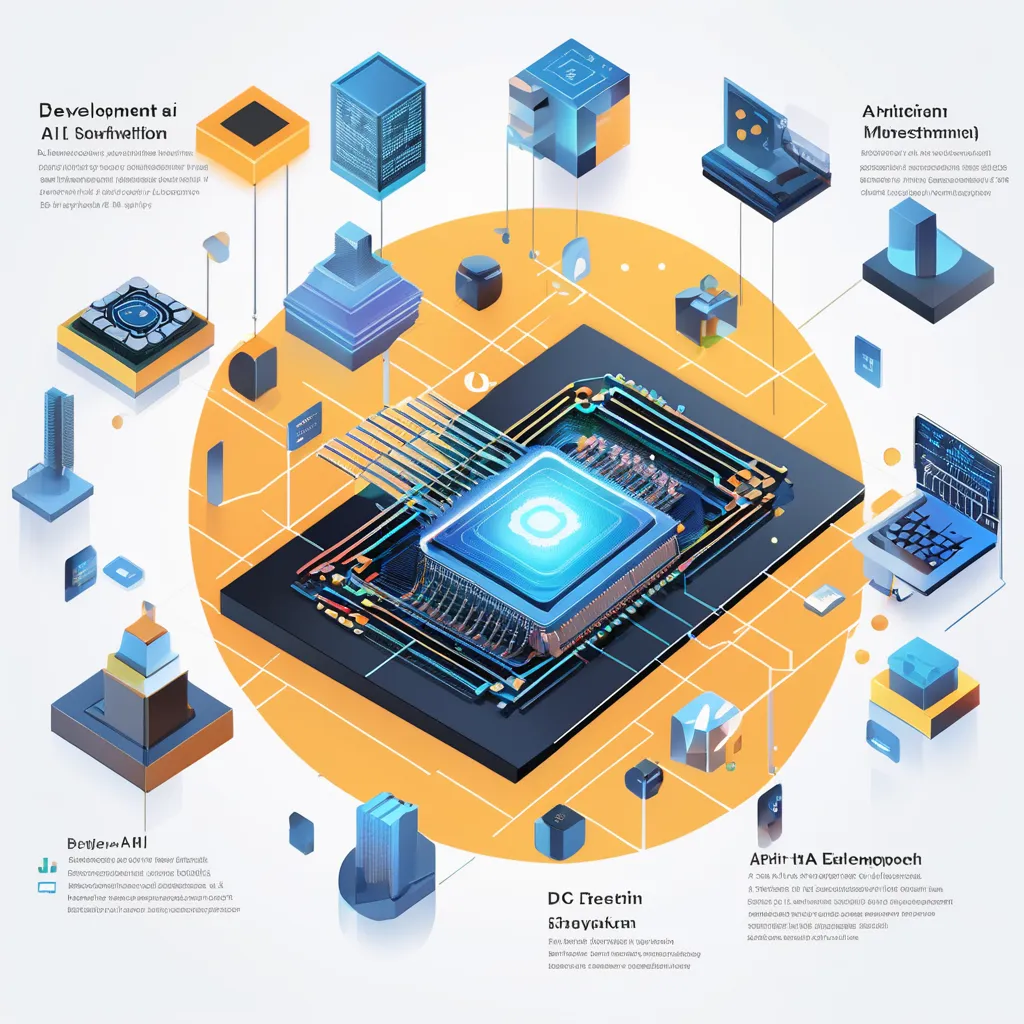As artificial intelligence (AI) applications continue to grow in complexity and scale, traditional hardware faces limitations in meeting performance and efficiency demands. This has led to the rapid development of AI-specific hardware designed to accelerate machine learning (ML) workloads, optimize energy consumption, and handle massive datasets with unparalleled efficiency.
Types of AI-Specific Hardware
- Graphics Processing Units (GPUs)
- Initially designed for rendering graphics, GPUs have become the backbone of AI workloads due to their ability to process thousands of parallel operations simultaneously.
- Example: NVIDIA A100, designed for deep learning and high-performance computing.
- Tensor Processing Units (TPUs)
- Custom-designed by Google, TPUs are specialized for matrix computations, commonly used in AI tasks like training and inference for deep neural networks.
- Example: Google TPU v4, optimized for large-scale AI models.
- Application-Specific Integrated Circuits (ASICs)
- ASICs are custom-built for specific AI tasks, offering maximum performance and energy efficiency for targeted applications.
- Example: OpenAI uses ASICs for optimizing ChatGPT’s deployment infrastructure.
- Field-Programmable Gate Arrays (FPGAs)
- FPGAs are reconfigurable chips that can be tailored to specific AI tasks, offering flexibility for evolving workloads.
- Example: Intel’s Stratix 10 FPGA for AI and data center applications.
- Neuromorphic Chips
- Inspired by the human brain, these chips use spiking neural networks to emulate biological processes, enabling energy-efficient AI processing.
- Example: IBM’s TrueNorth chip.
- Edge AI Processors
- Compact and power-efficient, these chips are designed for on-device AI processing, enabling applications like voice recognition and real-time analytics.
- Example: Apple’s Neural Engine in the A-series chips.
Impact on AI Development
- Faster Training Times
Specialized hardware dramatically reduces the time required to train large-scale models, enabling faster deployment of AI applications. - Increased Scalability
AI-specific hardware facilitates the handling of larger datasets and models, allowing organizations to scale their AI initiatives seamlessly. - Enhanced Energy Efficiency
Advanced designs reduce power consumption, addressing sustainability concerns and making AI deployment more cost-effective. - Wider Accessibility
With cost-effective solutions like edge AI processors, AI capabilities are becoming more accessible for consumer electronics and smaller enterprises.
Challenges in AI Hardware Development
- High Costs
Designing and manufacturing specialized hardware is expensive, often requiring significant R&D investment. - Rapid Technological Obsolescence
The fast-paced evolution of AI demands continuous innovation, which can make existing hardware obsolete quickly. - Supply Chain Constraints
The global semiconductor shortage has impacted the production and availability of AI-specific chips. - Environmental Concerns
Manufacturing high-performance chips consumes significant resources and energy, raising sustainability challenges.
Future Directions
- 3D Chip Stacking
This approach stacks multiple layers of processors, increasing performance and reducing energy consumption. - Quantum AI Chips
Quantum computing is being explored to revolutionize AI processing by solving problems classical hardware cannot address efficiently. - Chiplet Design
Modular chiplets allow developers to combine specialized components, improving scalability and customization for AI workloads. - Integration with Software
AI-specific hardware is increasingly paired with optimized software frameworks to maximize performance.
The development of AI-specific hardware is critical for the evolution of AI technologies, enabling breakthroughs in fields like autonomous systems, healthcare, and natural language processing. As the demand for AI grows, these innovations will continue to push the boundaries of what’s possible in computing.
Would you like a detailed comparison of different AI chips or insights into specific industry applications?

